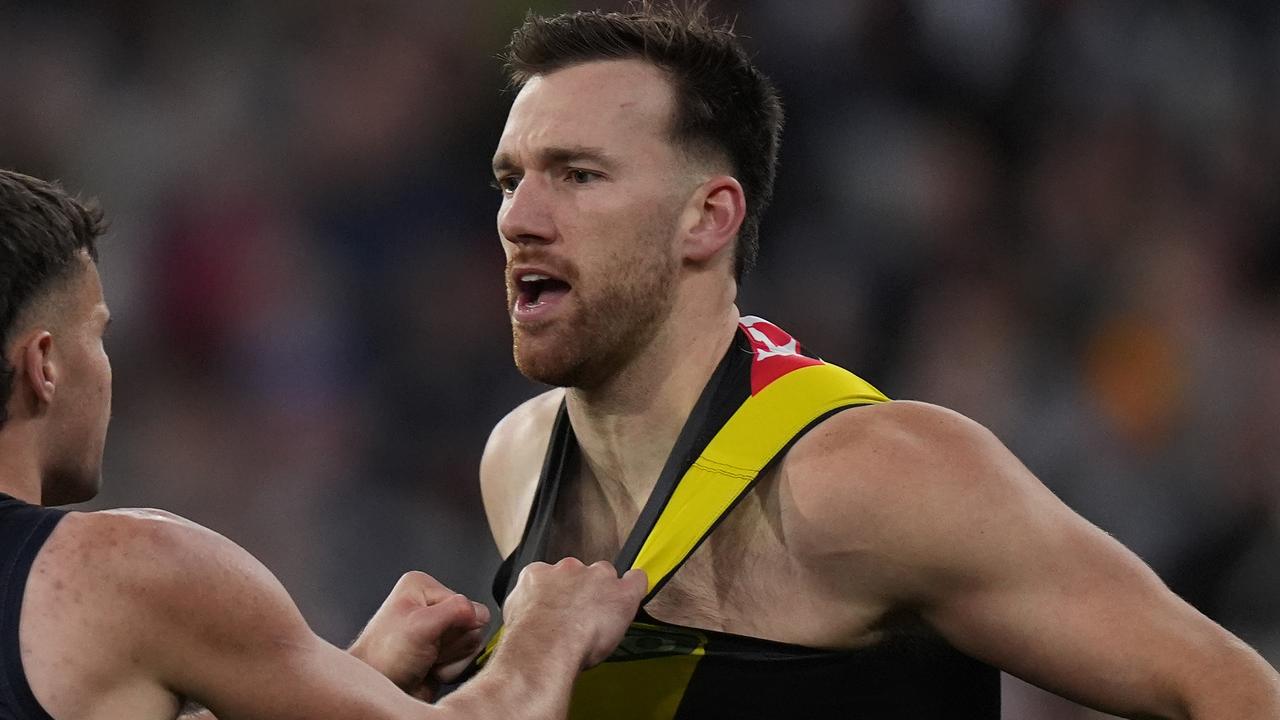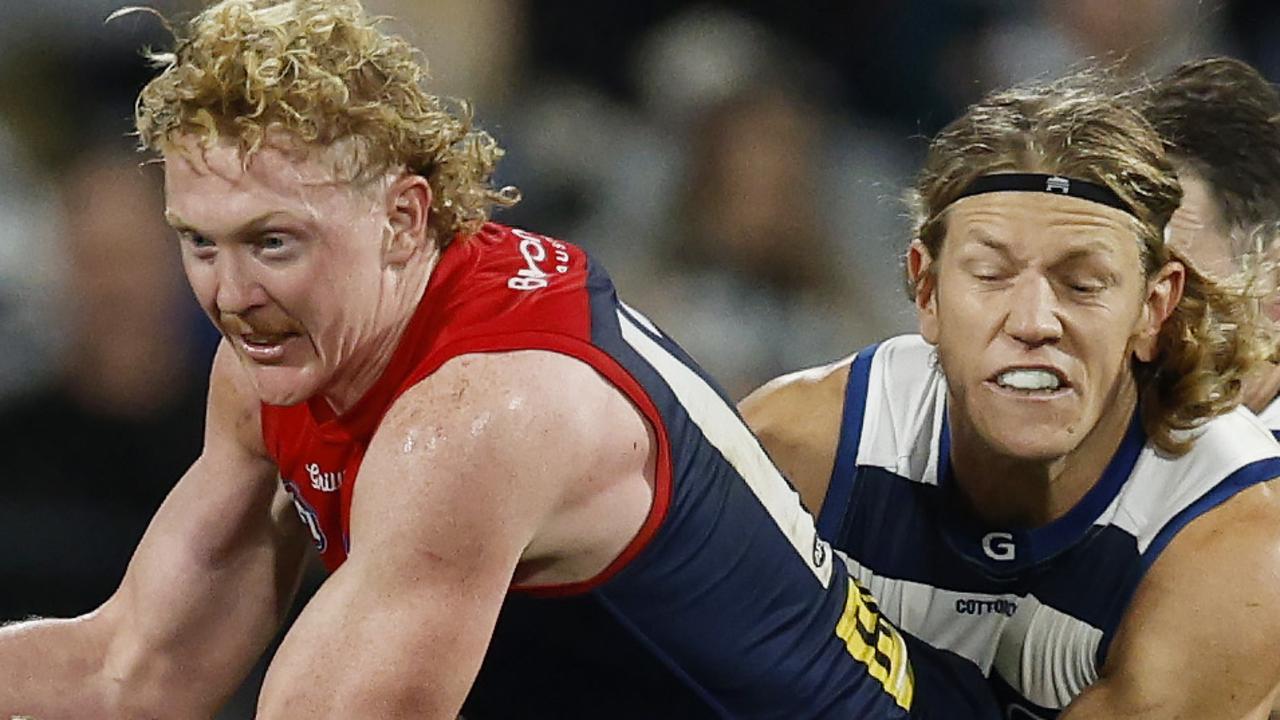How Low Can They Crow: The ugly truth behind the Adelaide’s board and its ‘boys’ club’
Adelaide fans have long bemoaned what some call the ‘boys’ club’ running the Crows board. But the AFL’s fingerprints are all over the Crows at the high level. MICHAEL WARNER investigates.
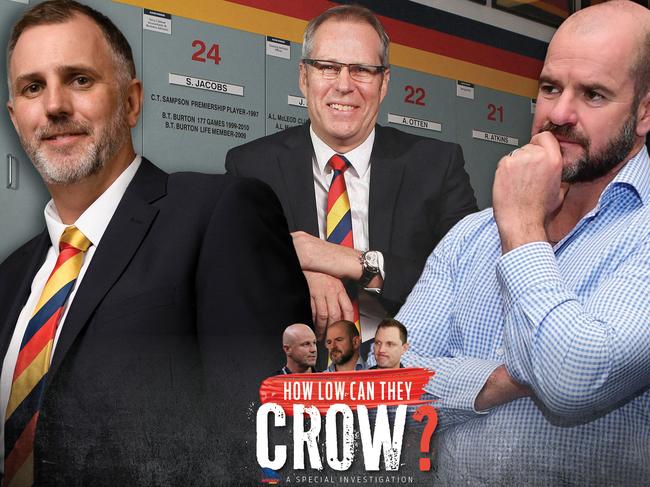
AFL
Don't miss out on the headlines from AFL. Followed categories will be added to My News.
When a horror goal-umpiring error robbed Adelaide of a place in last year’s AFL finals series, Crows chief executive Tim Silvers declared the club had agreed to move on begrudgingly.
“We did have a sleepless night and considered an array of options, but with the bigger picture this is where we landed,” Silvers said.
Top South Australian litigator Greg Griffin says it was a weak response, typical of a club that has long-adopted an “appeasement strategy” with AFL HQ that has “failed its members miserably”.
By Monday morning, Griffin says, the club should have lodged a Supreme Court injunction against the league – if only to show its “incredibly devoted membership base” that it will always “fight for points of principle”.
“No piece of litigation in sport is ever guaranteed, but the decision to do nothing when the members wanted action made no sense to me at all,” Griffin says.
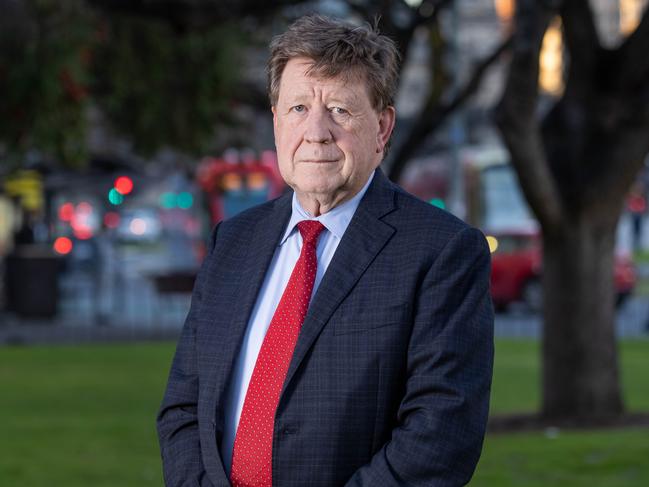
Few would know (and maybe care) that since 2014 under the terms of the Crows’ re-struck constitution, the AFL appoints seven of the nine Adelaide directors and has sole voting rights of all matters at annual general meetings other than the election of the two remaining board members.
Griffin says it’s an arrangement that has disenfranchised the voice of fans and played a role in the club’s era of mediocrity.
“The current board has some very talented members, including a former federal minister for sport (Kate Ellis) and a Brownlow medallist (Mark Ricciuto) – the type of candidate the members would no doubt want,” Griffin says.
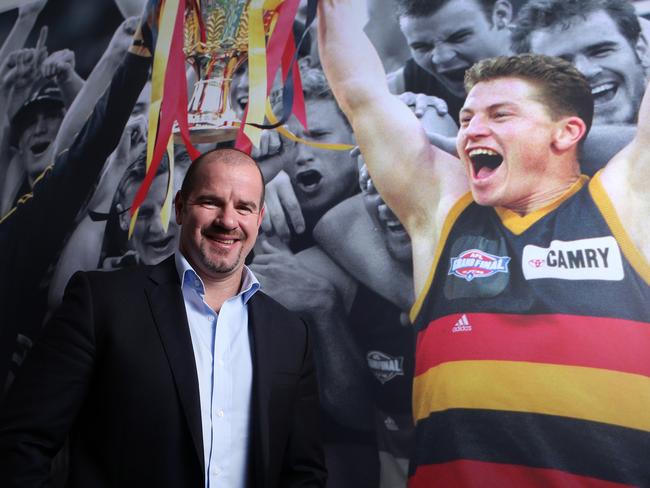
“But by ceding control of the board and hence the club to the AFL, the Crows will never reach the heights they are capable of.
“And were the Crows a true members’ club, where the membership actually voted for the board – not just two director places – I suspect the board would have paid a high price for their failure to act after last year’s goal umpiring error.”
Playing footsies under the table with the suits over in Melbourne doesn’t win you many games of football, but it sure helps when it comes to governance failings and outright cheating.
Just ask Steven Trigg, the former Crows chief executive who got caught red-handed cooking the club’s salary cap books a decade ago only to cop a wet lettuce leaf punishment and later Gillon McLachlan’s public endorsement to take the reins at Carlton.
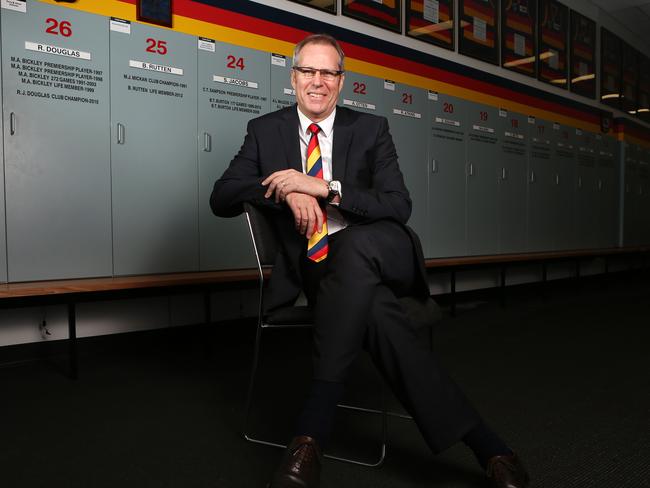
“Steven has been a very successful chief executive in our game. He made a mistake, he accepted responsibility for it, was punished and has come back into our game,” McLachlan said without a hint of irony of the Blues move at the time.
The right response came from then Hawthorn president Jeff Kennett, who expressed astonishment at the Trigg resuscitation.
“Cheating the salary cap … I mean what could be worse,” Kennett said.
“On my standard of governance he (Trigg) would have been sacked and unable to work again in the AFL because it was such a blatant abuse of the rules.
“This is just another indication that if you are a mate (of the AFL), if you are a friend of the inner circle, it doesn’t matter what you’ve done.”
Top silk David Galbally represented Crows forward Kurt Tippett at the AFL Commission “hearing” into the 2012 salary cap scandal and expressed his own amazement at the love-in.
“The commission were very anti-Tippett and very sympathetic to Trigg, who was a favoured administrator,” Galbally later said.
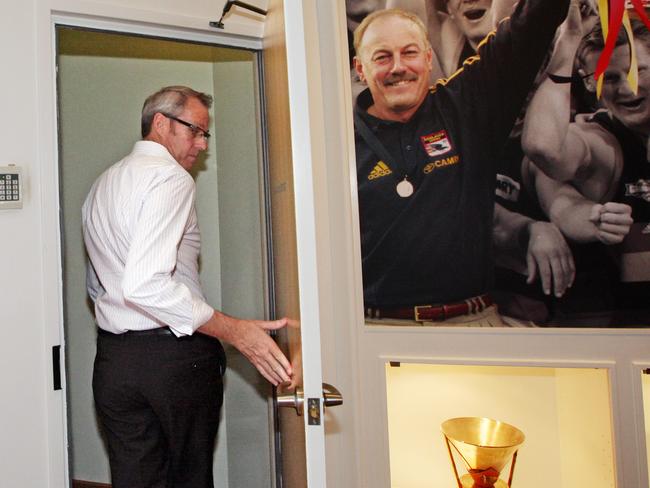
“They gave Trigg a terrific hearing and that is what annoyed me. It was very, very clear that he had a much better relationship with the AFL than we had.”
Adelaide’s “appeasement strategy” paid dividends again in 2018 when the AFL launched another integrity “investigation” into the club’s infamous pre-season camp in Queensland.
Claims of what transpired – most since proven – included players being blindfolded, tied to trees, driven around in blackened buses and subjected to deeply personal taunts, but the AFL soon announced that it had cleared the club of any wrongdoing.
As Griffin points out, as the club’s ultimate authority, the AFL was hardly going to arrive at a guilty verdict that would have exposed itself to legal liability.
“Port Power has the same constitution, meaning the AFL has control over both Adelaide clubs,” Griffin says.
The little-known arrangements came about in March 2014 when the two South Australian teams secured their independence from the SANFL by buying their licences from the state body for more than $18 million with AFL financial support.
The league has similar governance deals with expansion clubs Gold Coast and Greater Western Sydney, as well as Sydney.
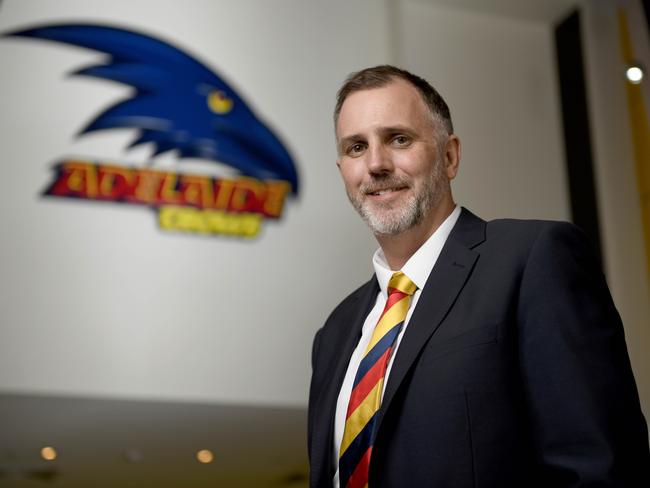
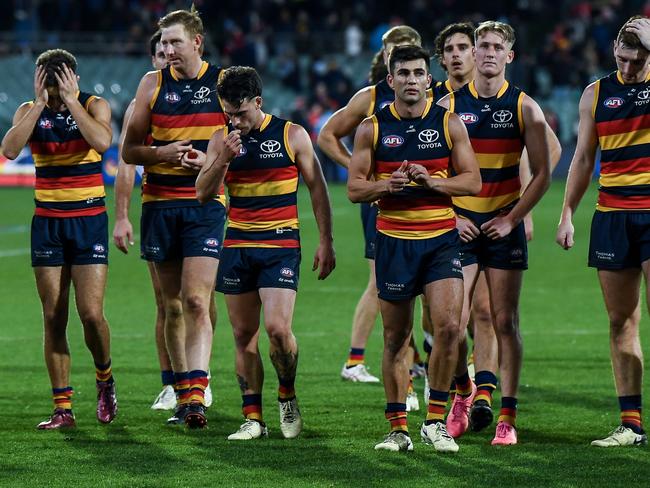
To be fair to the Swans, it was an arrangement the club inherited from the league in 1993 after the failed private ownership years of the 1980s.
And after the COLA wars, the Adam Goodes racism saga and the outrageous (and unprecedented) two-year trade ban imposed on the Swans after the recruitment of Lance Franklin – described by former chairman Richard Colless as “the greatest act of bastardry that I have ever observed or experienced in my time in football” – Sydney could hardly be accused of enjoying a cosy relationship with the AFL. But rival clubs have questioned why the Crows would voluntarily enter into the same agreement with eyes wide open in 2014.
Port was riddled with debt at the time and could perhaps be forgiven for signing up – but money has never been an issue at Adelaide.
“Up until that point, the SANFL appointed the directors and therefore controlled the club,” Griffin explains.
“So 2014 was a once in a generation opportunity to pay out the SANFL and assume control of the club for the benefit of members. But, of course, they didn’t do that.
“It just made no commercial sense”.

In a two-team town where most media operators have toed the party line for years, passionate FIVEAA broadcaster and former Crows player Stephen Rowe broke ranks last week to point the finger squarely at Adelaide’s underperforming hierarchy.
“Not enough people say it – it’s a boys’ club,” Rowe said on Thursday.
“I thought Tim Silvers would come in here with a silver bullet, but it’s the Stockholm syndrome — Google it if you don’t know what it is — you become them. You become the same as the captor.”
Ricciuto, a legend of the club, was co-opted onto the Crows’ board in 2014, and like most Adelaide directors, he has never had to face a vote of members.
Current president John Olsen, 79, a former Liberal premier and Australian consul-general in New York (and SANFL chairman when the 2014 licence deal was agreed), was also parachuted into the job four years ago.
But Griffin believes only true boardroom independence – and regular and robust elections, like the one that saw Jeff Browne take charge at Collingwood two years ago – will save Adelaide from itself.
Browne is for Collingwood – and Collingwood only – and has launched public campaigns against the league’s draconian soft cap rules and uneven annual distributions.
Fighting words you rarely, if ever, hear out of West Lakes.
“It is inconceivable that the membership of either Carlton or Collingwood would ever agree to any ceding over board control of their club to the AFL,” Griffin says.
The solution, he believes, is a rewriting of the club constitution and an end to the era of appeasement.
“Until Adelaide becomes a truly democratic club, where it is the members who vote upon all those it entrusts to run it, success will continue to elude it,” he says.
More Coverage
Originally published as How Low Can They Crow: The ugly truth behind the Adelaide’s board and its ‘boys’ club’




